Premier Development League
 | |
| Country | United States |
|---|---|
| Other club(s) from | Canada |
| Confederation | US Soccer |
| Founded | 1995 |
| Divisions | 10 in 4 Conferences |
| Number of teams |
61 US 6 Canadian |
| Level on pyramid | 4 (US), 4 (CA) |
| Promotion to | None |
| Relegation to | None |
| Domestic cup(s) | Lamar Hunt U.S. Open Cup |
| Current champions |
Michigan Bucks (2016) |
| Most championships | Michigan Bucks (3 titles) |
| Website |
uslpdl |
|
| |


The Premier Development League (commonly known as the PDL) is a development league sponsored by United Soccer Leagues in the United States and Canada, forming part of the United States soccer league system. It is currently considered the top-level men's amateur soccer competition in the United States, although it has no official designation as such from US Soccer. The league has 65 teams competing in four conferences, split into ten regional divisions. Unofficially, it is considered to be the fourth tier of competition, behind Major League Soccer, the North American Soccer League and the United Soccer League, along with the National Premier Soccer League which is also considered to be in the fourth tier of competition in the United States. With USL Pro re-branding as the United Soccer League in February 2015, the PDL dropped the "USL" descriptor from their name, simply operating as the "Premier Development League".
Michigan Bucks are the current PDL champions, having defeated the Calgary Foothills FC 3–2 in the 2016 PDL Championship game on August 6, 2016.
Competition format
The Premier Development League, as of the 2016 season, is divided into 4 conferences (Eastern, Southern, Central, and Western), comprising 10 divisions. The league season runs from May through July, with the playoffs decided through July and August. Most divisions aim to play a balanced regular season schedule of between 12-14 games in a round-robin home and away format, with the top 2-3 teams of each division advancing to the playoffs.
Playoffs
The PDL Playoffs see most regular season division champions earn automatic byes into the Conference Semi-finals, with some second and third place division runners-up competing in single match elimination Divisional Qualifiers. All matches in the PDL Playoffs are played in single match elimination format, with the higher seeded team hosting the match, until a Champion is decided at a predetermined neutral location for a playoff weekend, in which both the Semi-final and Championship matches are played.
History
1990s
In 1995 the United States Interregional Soccer League (USISL) changed its name to the United States International Soccer League, and split into two leagues, one professional (the 'Professional League', which ultimately became the USL Second Division) and one amateur (the 'Premier League'). The purpose for the split was to expand into and improve the soccer capabilities of many urban areas throughout the United States and Canada, while offering current college soccer players the opportunity to continue playing during the summer months without losing their college eligibility. The inaugural season of the new USISL Premier League featured 27 teams, and the Richmond Kickers won the first title, beating the Cocoa Expos 3–1 in the championship game.[1] Gabe Jones of the Austin Lone Stars was the league's top scorer and MVP.
The United States International Soccer League changed its name again in 1996, to the United Systems of Independent Soccer Leagues, and before the season, there was substantial movement of teams between the Pro League, the Premier League and the newly created Select League (which would later merge with the A-League, and eventually become the USL First Division). The Premier League grew to 34 teams in its second year, with the Central Coast Roadrunners from San Luis Obispo, California beating the San Francisco Bay Seals in the championship game to take the title.[2] Pasi Kinturi of the Nashville Metros was the league's top scorer and MVP.

The Premier League renamed itself the Premier Development Soccer League (PDSL) in 1997, and the Central Coast Roadrunners repeated as national champions, the first team to do so, beating the Cocoa Expos in the PDSL championship game.[3] Lester Felicia of the Jackson Chargers was the league's MVP, while Rodrigo Costa of the Detroit Dynamite was the leading scorer and the league's Rookie of the Year, tallying 21 goals and 2 assists for 44 points. In 1998 the PDSL took to the field with 33 teams, including four associate members from the Pacific Coast Soccer League who played shortened schedules after their PCSL season was over. In the championship game the San Gabriel Valley Highlanders upset regular season champions Jackson Chargers 3–2, taking the trophy to California for the third straight year. Rodrigo Costa of the Detroit Dynamite was the league MVP, Boniventure Manati of the Jackson Chargers was the league's top scorer, and a young striker by the name of Brian Ching from the Spokane Shadow was named Rookie of the Year.[4]
In 1999 the umbrella USISL changed its name to the United Soccer Leagues, and the Premier Development Soccer League dropped the 'soccer' part of its name and became known as the United Soccer Leagues Premier Development League, or PDL. The league took in several teams from the D3Pro league, expanding to 42 teams in six divisions. Expansion franchise Chicago Sockers ultuimately won the league, beating Spokane Shadow 3–1 for the title in a tight championship game. Fabio Eidenwein of the Sioux City Breeze was named League MVP and was the top scorer, with 20 goals.[5]
2000s
The PDL expanded by a further eight franchises in 2000, and the Chicago Sockers won their second straight title, beating the Mid-Michigan Bucks in a close 1–0 championship game. The single goal was scored by Rodrigo Costa who, having received a pass from teammate Hamid Mehreioskouei, chipped Bucks goalkeeper Eric Pogue from 18 yards through a crowded penalty area. Fernando Salazar of the Los Angeles-based San Fernando Valley Heroes was the league's MVP, while his teammate Arshak Abyanli took the honors as top goalscorer.[6]
The league grew from 41 to 44 teams in 2001 through the usual mix of relegation from D3Pro, teams folding and new franchises being added. In the semi-finals, the Westchester Flames defeated Sioux Falls Spitfire 5–1 and Calgary Storm defeated Des Moines Menace 2–1; in the final, Westchester defeated Calgary 3–1 to take their first league title.[7] Des Moines and Chicago Fire Reserves dominated the 2002 regular season, but both teams stuttered in the playoffs; the PDL final saw the Cape Cod Crusaders defeating the Boulder Rapids Reserve 2–1 to bring the title to the Northeast for the second year in a row. 2002 also saw the debut of the soon-to-be PDL legend, Tomas Boltnar of Des Moines Menace, who secured an unprecedented triple-crown of PDL MVP, Top Scorer and Rookie of the Year.[8]
The mid-2000s was a period of steady growth and consolidation for the PDL. A TV agreement with Fox Soccer Channel saw the PDL Championship game being broadcast live on national television in North America for the first time, and professional teams began investing in the league by adding U-23 development sides as an addition to their senior rosters. Cape Cod repeated as PDL champs in 2003, beating the Chicago Fire Reserves in the final[9] (and despite the presence of Jürgen Klinsmann playing for Orange County Blue Star), while 2004 saw the title head to Florida for the first time as the Central Florida Kraze overcame perennial bridesmaids Boulder Rapids Reserve.[10]
Des Moines Menace took the PDL Championship trophy back to Iowa in 2005 after beating the El Paso Patriots 6–5 on penalty kicks, following a 0–0 draw in the PDL Championship game.[11][12] 2006 saw the beginning of two seasons of dominance for two teams: the Michigan Bucks and the Laredo Heat. Both teams made the PDL Final in 2006 and 2007, with the Bucks emerging victorious in '06 with a 2–1 win thanks to goals by Kenny Uzoigwe and Ty Shipalane,[13][14] only for Laredo to get their revenge the following year with an epic penalty kicks win after a 0–0 tie in regulation time.
Laredo became the first team to make three consecutive PDL championship games in 2008, but fell at the final hurdle to Thunder Bay Chill, who became the first ever Canadian side to win the PDL following their 4–1 penalty shootout victory.[15] The PDL had grown to 68 teams by 2009, and to reflect their growing reputation, introduced a new scheme called PDL-Pro, whereby certain teams would be allowed to act as professional clubs, paying players, while still adhering to NCAA collegiate eligibility rules, and the USL's own age restriction policy. Ventura County Fusion returned the PDL title to Southern California for the first time in over a decade with a stoppage-time victory over Chicago Fire Premier, and in doing so became the lowest-seeded team to claim the national title.[16]
2010s
The 2010s began with a record, as the Portland Timbers U23s ended the season as national champions, beating Thunder Bay Chill 4–1 in the 2010 PDL Championship game.[17] The Timbers also had the best regular season record, winning all their 16 games, scoring 53 goals and conceding just six along the way. In doing so the Timbers became the first team to post a perfect PDL regular season record since the Jackson Chargers in 1998,[18] the first regular season champion to win the playoffs since the Central Coast Roadrunners in 1996, and the first team in PDL history to go through an entire PDL regular season and playoff campaign without posting a loss or a tie. Portland Timbers U23s striker Brent Richards was named League MVP and Rookie of the Year for his stellar campaign with the national champions. Players from Canadian side Thunder Bay Chill led the majority of the statistical categories, with striker Brandon Swartzendruber leading the league with 15 goals, while his teammate Gustavo Oliveira led the league with 13 assists. Portland Timbers U23s goalkeeper Jacob Gleeson enjoyed the best goalkeeping statistics, allowing just five goals in 15 games and earning with a 0.360 GAA average.[19]
Western Conference teams dominated the league in 2011 for the third year in a row, with the Kitsap Pumas ending the season as national champions, beating Laredo Heat 1–0 in the 2011 PDL Championship game. Kitsap, who lost just one game and conceded just ten goals all season, were the second team from the Northwest Division to win the national title in a row, while Laredo were contesting their fourth championship game in six years. Interestingly, Kitsap also were the first PDL-Pro team to win the championship, a milestone for the league. Kitsap's Western Conference rivals Fresno Fuego had the best regular-season record, posting an unbeaten 13–0–3 record. Fresno midfielder Milton Blanco was named League MVP, after leading the league in points (38) and assists (14) and helping his team to the Southwest Division title. Two Michigan Bucks players – Stewart Givens and Mitch Hildebrandt – were given end-of-season awards as Defender of the Year and Goalkeeper of the Year respectively, while their coach Gary Parsons was named Coach of the Year. Jake Keegan of the Westchester Flames was named Rookie of the Year after tallying 16 goals in 16 games to take the league goal-scoring crown. Keegan accounted for 64 percent of Westchester's goals in 2011 and also finished third in the league in points with 34.[20]
The 2012 PDL season would see a resurgence of the Eastern Conference, as the Michigan Bucks would claim the regular season title, with Canadian rivals Forest City London winning their first ever PDL Championship in an East coast contest, defeating Carolina Dynamo 2–1.[21] Canadian clubs would also have another strong season in 2013, with four of eight Canadian clubs finishing in the final eight and two, the Victoria Highlanders and Thunder Bay Chill, advancing to the semi-finals.[22] After a final four finish in 2012, The Chill would repeat their strong season, winning the 2013 regular season title but falling to the Austin Aztex in the Championship final 3–1 in front of a crowd of 4,253 fans, the largest attendance for a final since 2007.[23][24]
In 2014, the Michigan Bucks would claim their second PDL Championship, defeating the Kitsap Pumas 1-0 on August 3, 2014, following a strong regular season campaign with a record of 9-2-3.[25]
With USL Pro re-branding as the United Soccer League in February 2015,[26] the PDL dropped the "USL" descriptor from their name, simply operating as the "Premier Development League".
The 2015 season would see league newcomers, New York Red Bulls U-23, put forth a very strong showing, finishing first in the Mid Atlantic Division and making it all the way to the Championship Final, before falling to the lower-seeded K-W United FC, who emerged from the very competitive Great Lakes Division, fending off perennial contenders and rivals Forest City London and the defending champions Michigan Bucks on their path to the final. United would come away winners 4-3 over the Red Bulls on August 3, 2015 at Starfire Stadium in Tukwila, Washington to claim their first ever Championship and the third for a Canadian club.[27][28]
Organization
While not strictly a "professional" league[29] in the sense that the majority of players do not receive payment, the PDL prides itself on its professionalism in terms of its organization and the way the league is run, and its dedication to developing young soccer players, preparing them for future careers in professional leagues in the United States and elsewhere. As PDL seasons take place during the summer months, the player pool is drawn mainly from elite NCAA college soccer and NAIA college soccer players seeking to continue playing high-level soccer during their summer break, which they can do while still maintaining their college eligibility.
However, in recent years, teams such as Laredo Heat, New Orleans Jesters, Vancouver Whitecaps FC U-23, Kitsap Pumas and the Hollywood United Hitmen have been embracing at least partial professionalism through a new program called PDL-Pro, whereby teams can choose to employ players who are paid for their performances,[30] but who still meet the age eligibility criteria. This does not contravene NCAA rules, which state that college players cannot play alongside professionals, but may play against them. What this also means, however, is that PDL-Pro teams cannot have any active NCAA players on their rosters, but may employ NAIA and community college players, ex-NCAA players who have already graduated, or other local players who do not play college soccer at all.
In addition, PDL squads often also include standout high school and junior club players, as well as former professionals seeking to continue competing at a high level, often having been forced to retire from top flight competition due to age or injury. PDL rules dictate that a maximum of eight players on each team's 26-man roster can be over 23 years old, while at least three players on each team's roster must be 18 or younger.
Increasingly, the PDL is seen as a 'shop window' for professional clubs looking to discover and identify aspiring professional players who may enter the MLS SuperDraft in future years. Many of the players currently playing in Major League Soccer and elsewhere began their careers in the PDL.
Current clubs
Future clubs
| Team | Country | City/area | Stadium | Founded | Head coach | Notes |
|---|---|---|---|---|---|---|
| Lakeland Tropics | U.S. | Lakeland, Florida | TBD | 2016 | TBD | Expansion[34] |
| Nashville SC U23 | U.S. | Nashville, Tennessee | TBD | 2016 | TBD | Expansion[35] |
| Wilmington Hammerheads FC | U.S. | Wilmington, North Carolina | Legion Stadium | 1996 | TBD | USL[36] |
| Tobacco Road FC | U.S. | Durham, North Carolina | Durham County Stadium | 2013 | TBD | NPSL[37] |
| Myrtle Beach Mutiny | U.S. | Myrtle Beach, South Carolina | TBD | 2011 | TBD | NPSL |
| Weston FC | U.S. | Weston, Florida | Broward College Soccer Field | 1998 | TBD | NPSL |
Champions
Complete team list
Notable professional players with PDL experience
Many senior international players had their first taste of competitive league experience playing in the PDL. This list includes players who, after playing in the PDL, have achieved some kind of significant success as a professional soccer player – playing internationally for their country, playing in one of the world's top leagues (such as the Premier League in England), being a No. 1 draft pick, or winning a major award such as the MLS Rookie of the Year award or the MAC Hermann Trophy, which is awarded to the best college soccer player of a given year and is American soccer's equivalent of the Heisman Trophy.
-
 Tesho Akindele, Real Colorado Foxes (2013), 2014 MLS Rookie of the Year, Canadian international
Tesho Akindele, Real Colorado Foxes (2013), 2014 MLS Rookie of the Year, Canadian international -
 Eric Alexander, Kalamazoo Kingdom/West Michigan Edge/Kalamazoo Outrage (2006–2009), U.S. international
Eric Alexander, Kalamazoo Kingdom/West Michigan Edge/Kalamazoo Outrage (2006–2009), U.S. international -
 Anthony Ampaipitakwong, Bradenton Academics (2006–2009), Thai international
Anthony Ampaipitakwong, Bradenton Academics (2006–2009), Thai international -
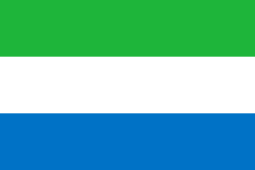 Teteh Bangura, Cascade Surge, Sierra Leonean international
Teteh Bangura, Cascade Surge, Sierra Leonean international -
 Steven Beitashour, San Jose Frogs (2007–2008), Iranian international
Steven Beitashour, San Jose Frogs (2007–2008), Iranian international -
 Tony Beltran, Los Angeles Storm (2007), U.S. international
Tony Beltran, Los Angeles Storm (2007), U.S. international -
 Austin Berry, Chicago Fire Premier (2010), 2012 MLS Rookie of the Year
Austin Berry, Chicago Fire Premier (2010), 2012 MLS Rookie of the Year -
 Nikolas Besagno, Tacoma Tide/Kitsap Pumas/Washington Crossfire (2009–present), No. 1 Pick in 2005 MLS Superdraft
Nikolas Besagno, Tacoma Tide/Kitsap Pumas/Washington Crossfire (2009–present), No. 1 Pick in 2005 MLS Superdraft -
 Steve Birnbaum, Orange County Blue Star (2010–2011), U.S. international
Steve Birnbaum, Orange County Blue Star (2010–2011), U.S. international -
 Ian Bishop, New Orleans Shell Shockers (2004), English Premier League player
Ian Bishop, New Orleans Shell Shockers (2004), English Premier League player -
 Nat Borchers, Boulder Rapids Reserve (2002), U.S. international
Nat Borchers, Boulder Rapids Reserve (2002), U.S. international -
 Henry Brauner, New Hampshire Phantoms/Ventura County Fusion (2008–2009), Philippines international
Henry Brauner, New Hampshire Phantoms/Ventura County Fusion (2008–2009), Philippines international -
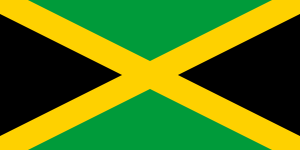 Deshorn Brown, Des Moines Menace/Reading United (2011–2012), Jamaican international
Deshorn Brown, Des Moines Menace/Reading United (2011–2012), Jamaican international -
 Teal Bunbury, Rochester Thunder (2009), U.S. international, 2009 Hermann Trophy winner
Teal Bunbury, Rochester Thunder (2009), U.S. international, 2009 Hermann Trophy winner -
 Geoff Cameron, Rhode Island Stingrays (2005–2007), U.S. international, English Premier League player
Geoff Cameron, Rhode Island Stingrays (2005–2007), U.S. international, English Premier League player -
 Chris Carrieri, New Brunswick Brigade (2000), No. 1 Pick in 2001 MLS SuperDraft
Chris Carrieri, New Brunswick Brigade (2000), No. 1 Pick in 2001 MLS SuperDraft -
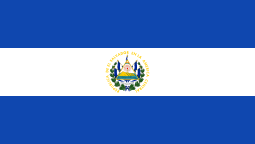 Derby Carrillo, Newark Ironbound Express/Kitsap Pumas (2009–2010), Salvadoran international
Derby Carrillo, Newark Ironbound Express/Kitsap Pumas (2009–2010), Salvadoran international -
 Brian Ching, Spokane Shadow (1998–1999), U.S. international
Brian Ching, Spokane Shadow (1998–1999), U.S. international -
 Colin Clark, Boulder Rapids Reserve (2005), U.S. international
Colin Clark, Boulder Rapids Reserve (2005), U.S. international -
 Sam Cronin, Carolina Dynamo (2005–2008), U.S. international
Sam Cronin, Carolina Dynamo (2005–2008), U.S. international -
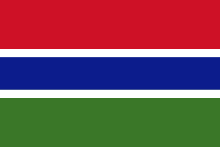 Mamadou Danso, Cary RailHawks U23s (2008), Gambian international
Mamadou Danso, Cary RailHawks U23s (2008), Gambian international -
 Charlie Davies, Westchester Flames (2006), U.S. international, French Ligue 1 player
Charlie Davies, Westchester Flames (2006), U.S. international, French Ligue 1 player -
 Chad Deering, DFW Tornados (2004), U.S. international, German Bundesliga player
Chad Deering, DFW Tornados (2004), U.S. international, German Bundesliga player -
 Jay DeMerit, Chicago Fire Premier (2001–2002), U.S. international, English Premier League player
Jay DeMerit, Chicago Fire Premier (2001–2002), U.S. international, English Premier League player -
 Bright Dike, Indiana Invaders (2006), Nigerian international
Bright Dike, Indiana Invaders (2006), Nigerian international -
 Todd Dunivant, Boulder Rapids Reserve (2002), U.S. international
Todd Dunivant, Boulder Rapids Reserve (2002), U.S. international -
 Randy Edwini-Bonsu, Vancouver Whitecaps Residency (2008–2010), Canadian international
Randy Edwini-Bonsu, Vancouver Whitecaps Residency (2008–2010), Canadian international -
 Brad Evans, Orange County Blue Star (2004–2006), U.S. international
Brad Evans, Orange County Blue Star (2004–2006), U.S. international -
 Rodrigo Faria, Westchester Flames (2000), 2001 MLS Rookie of the Year
Rodrigo Faria, Westchester Flames (2000), 2001 MLS Rookie of the Year -
 Andrew Farrell, Bradenton Academics/River City Rovers (2012), No. 1 Pick in 2013 MLS SuperDraft
Andrew Farrell, Bradenton Academics/River City Rovers (2012), No. 1 Pick in 2013 MLS SuperDraft -
 Robbie Findley, Boulder Rapids Reserve (2005–2006), U.S. international
Robbie Findley, Boulder Rapids Reserve (2005–2006), U.S. international -
 Sean Franklin, San Fernando Valley Quakes (2006–2007), 2008 MLS Rookie of the Year, U.S. international
Sean Franklin, San Fernando Valley Quakes (2006–2007), 2008 MLS Rookie of the Year, U.S. international -
 Cory Gibbs, Palm Beach Pumas (2000), U.S. international, German Bundesliga player
Cory Gibbs, Palm Beach Pumas (2000), U.S. international, German Bundesliga player -
 Jake Gleeson, Portland Timbers U23s (2010), New Zealand international
Jake Gleeson, Portland Timbers U23s (2010), New Zealand international -
 Herculez Gomez, San Diego Gauchos (2003), U.S. international
Herculez Gomez, San Diego Gauchos (2003), U.S. international -
 Clarence Goodson, Boulder Rapids Reserve (2003), U.S. international
Clarence Goodson, Boulder Rapids Reserve (2003), U.S. international -
 Sidney Govou, FC Miami City Champions (2015), French international, French Ligue 1 player
Sidney Govou, FC Miami City Champions (2015), French international, French Ligue 1 player -
 Henry Gutierrez, Cary RailHawks U23s (2008), U.S. international
Henry Gutierrez, Cary RailHawks U23s (2008), U.S. international -
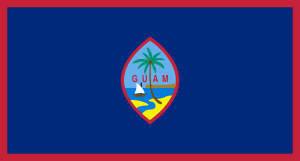 Ryan Guy, Boulder Rapids Reserve (2005), Guam international
Ryan Guy, Boulder Rapids Reserve (2005), Guam international -
 Brad Guzan, Chicago Fire Premier (2003–2004), U.S. international, English Premier League player
Brad Guzan, Chicago Fire Premier (2003–2004), U.S. international, English Premier League player -
 Matt Hedges, Reading United (2010–2011), U.S. international
Matt Hedges, Reading United (2010–2011), U.S. international -
 Tyler Hemming, Ottawa Fury/Forest City London (2005–2006, 2011–present), Canadian international
Tyler Hemming, Ottawa Fury/Forest City London (2005–2006, 2011–present), Canadian international -
 Kamani Hill, Orange County Blue Star/San Fernando Valley Quakes (2005–2006), U.S. international, German Bundesliga player
Kamani Hill, Orange County Blue Star/San Fernando Valley Quakes (2005–2006), U.S. international, German Bundesliga player -
 Lars Hirschfeld, Calgary Storm (2001–2002), Canadian international
Lars Hirschfeld, Calgary Storm (2001–2002), Canadian international -
 Miguel Ibarra, Lancaster Rattlers/Orange County Blue Star (2008–2011), U.S. international
Miguel Ibarra, Lancaster Rattlers/Orange County Blue Star (2008–2011), U.S. international -
 Vedad Ibišević, St. Louis Strikers/Chicago Fire Premier (2003–2004), Bosnian international, French Ligue 1 player, German Bundesliga player
Vedad Ibišević, St. Louis Strikers/Chicago Fire Premier (2003–2004), Bosnian international, French Ligue 1 player, German Bundesliga player -
 Evan James, Hamilton FC/K-W United FC (2011, 2013), Canadian international
Evan James, Hamilton FC/K-W United FC (2011, 2013), Canadian international -
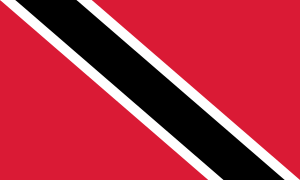 Julius James, Westchester Flames (2006), Trinidadian international
Julius James, Westchester Flames (2006), Trinidadian international -
 Ryan Johnson, Cape Cod Crusaders/Boulder Rapids Reserve (2002, 2005), Jamaican international
Ryan Johnson, Cape Cod Crusaders/Boulder Rapids Reserve (2002, 2005), Jamaican international -
 Sean Johnson, Atlanta Blackhawks (2009), U.S. international
Sean Johnson, Atlanta Blackhawks (2009), U.S. international -
 Frank Jonke, Toronto Lynx (2007), Canadian international
Frank Jonke, Toronto Lynx (2007), Canadian international -
 Kei Kamara, Orange County Blue Star (2004–2005), Sierra Leonean international, English Premier League player
Kei Kamara, Orange County Blue Star (2004–2005), Sierra Leonean international, English Premier League player -
 Perry Kitchen, Chicago Fire Premier (2010), U.S. international
Perry Kitchen, Chicago Fire Premier (2010), U.S. international -
 Jürgen Klinsmann, Orange County Blue Star (2003), German international, World Cup winner, English Premier League player, German Bundesliga player, current U.S. national team coach
Jürgen Klinsmann, Orange County Blue Star (2003), German international, World Cup winner, English Premier League player, German Bundesliga player, current U.S. national team coach -
 Sacha Kljestan, Orange County Blue Star (2005), U.S. international
Sacha Kljestan, Orange County Blue Star (2005), U.S. international -
 Michael Lahoud, Carolina Dynamo (2006–2008), Sierra Leonean international
Michael Lahoud, Carolina Dynamo (2006–2008), Sierra Leonean international -
 Joseph Lapira, Louisiana Outlaws/Lafayette Swamp Cats/Baton Rouge Capitals (2003–2007), Irish international, 2006 Hermann Trophy winner
Joseph Lapira, Louisiana Outlaws/Lafayette Swamp Cats/Baton Rouge Capitals (2003–2007), Irish international, 2006 Hermann Trophy winner -
 Roy Lassiter, Laredo Heat (2004), U.S. international
Roy Lassiter, Laredo Heat (2004), U.S. international -
 Patrick Leduc, Twin Cities Tornado (1998–1999), Canadian international
Patrick Leduc, Twin Cities Tornado (1998–1999), Canadian international -
 Eric Lichaj, Chicago Fire Premier (2006), U.S. international, English Premier League player
Eric Lichaj, Chicago Fire Premier (2006), U.S. international, English Premier League player -
 Zach Loyd, Carolina Dynamo (2007–2009), U.S. international
Zach Loyd, Carolina Dynamo (2007–2009), U.S. international -
 Yohance Marshall, Vermont Voltage (2011), Trinidadian international
Yohance Marshall, Vermont Voltage (2011), Trinidadian international -
 Gerson Mayen, Los Angeles Misioneros (2012), Salvadoran international
Gerson Mayen, Los Angeles Misioneros (2012), Salvadoran international -
 Dax McCarty, Ajax Orlando Prospects (2004–2005), U.S. international
Dax McCarty, Ajax Orlando Prospects (2004–2005), U.S. international -
 Oscar Moens, Dayton Dutch Lions (2010), Dutch international
Oscar Moens, Dayton Dutch Lions (2010), Dutch international -
 Drew Moor, Chicago Fire Premier (2004), U.S. international
Drew Moor, Chicago Fire Premier (2004), U.S. international -
 Jordan Morris, Seattle Sounders FC U-23 (2014), 2015 Hermann Trophy Winner, 2016 MLS Rookie of the Year, U.S. international
Jordan Morris, Seattle Sounders FC U-23 (2014), 2015 Hermann Trophy Winner, 2016 MLS Rookie of the Year, U.S. international -
 Justin Morrow, Indiana Invaders/Cleveland Internationals/Chicago Fire Premier (2007–2009), U.S. international
Justin Morrow, Indiana Invaders/Cleveland Internationals/Chicago Fire Premier (2007–2009), U.S. international -
 Lexton Moy, Laredo Heat (2007), Philippines international
Lexton Moy, Laredo Heat (2007), Philippines international -
 Patrick Mullins, Baton Rouge Capitals/New Orleans Jesters (2007, 2011–2012), Two-time Hermann Trophy winner (2012, 2013)
Patrick Mullins, Baton Rouge Capitals/New Orleans Jesters (2007, 2011–2012), Two-time Hermann Trophy winner (2012, 2013) -
 Chance Myers, Ventura County Fusion (2007), No. 1 Pick in 2008 MLS SuperDraft
Chance Myers, Ventura County Fusion (2007), No. 1 Pick in 2008 MLS SuperDraft -
 Darlington Nagbe, Cleveland Internationals (2007–2010), 2010 Hermann Trophy winner, U.S. international
Darlington Nagbe, Cleveland Internationals (2007–2010), 2010 Hermann Trophy winner, U.S. international -
 Gifton Noel-Williams, DFW Tornados (2010), English Premier League player
Gifton Noel-Williams, DFW Tornados (2010), English Premier League player -
 Pat Noonan, Mid Michigan Bucks (2002), U.S. international
Pat Noonan, Mid Michigan Bucks (2002), U.S. international -
 Danny O'Rourke, Dayton Gemini/Chicago Fire Premier/Columbus Shooting Stars (2000–2004), 2004 Hermann Trophy winner
Danny O'Rourke, Dayton Gemini/Chicago Fire Premier/Columbus Shooting Stars (2000–2004), 2004 Hermann Trophy winner -
 Olivier Occéan, Vermont Voltage (2002–2003), Canadian international, German Bundesliga player
Olivier Occéan, Vermont Voltage (2002–2003), Canadian international, German Bundesliga player -
 Dominic Oduro, Richmond Kickers Future (2005), Ghanaian international
Dominic Oduro, Richmond Kickers Future (2005), Ghanaian international -
 Demitrius Omphroy, San Francisco Seals (2008), Philippines international
Demitrius Omphroy, San Francisco Seals (2008), Philippines international -
 Dever Orgill, Vancouver Whitecaps Residency (2009–2010), Jamaican international
Dever Orgill, Vancouver Whitecaps Residency (2009–2010), Jamaican international -
 David Oteo, Rio Grande Valley Grandes (2011), Mexican international
David Oteo, Rio Grande Valley Grandes (2011), Mexican international -
 Michael Parkhurst, Bradenton Academics (2003), 2005 MLS Rookie of the Year, U.S. international, German Bundesliga player
Michael Parkhurst, Bradenton Academics (2003), 2005 MLS Rookie of the Year, U.S. international, German Bundesliga player -
 Logan Pause, Raleigh CASL Elite (2002), U.S. international
Logan Pause, Raleigh CASL Elite (2002), U.S. international -
 Heath Pearce, Bradenton Academics (2004), U.S. international, German Bundesliga player
Heath Pearce, Bradenton Academics (2004), U.S. international, German Bundesliga player -
 Troy Perkins, Cape Cod Crusaders (2002), U.S. international
Troy Perkins, Cape Cod Crusaders (2002), U.S. international -
 Charley Pettys, Cincinnati Kings/Orange County Blue Star (2008, 2011–2012), Philippines international
Charley Pettys, Cincinnati Kings/Orange County Blue Star (2008, 2011–2012), Philippines international -
 Kyle Porter, Vancouver Whitecaps Residency (2008–2010), Canadian international
Kyle Porter, Vancouver Whitecaps Residency (2008–2010), Canadian international -
 Dillon Powers, Austin Aztex (2012), 2013 MLS Rookie of the Year
Dillon Powers, Austin Aztex (2012), 2013 MLS Rookie of the Year -
 Tim Ream, Chicago Fire Premier (2008–2009), U.S. international, English Premier League player
Tim Ream, Chicago Fire Premier (2008–2009), U.S. international, English Premier League player -
 Luis Robles, Boulder Rapids Reserve (2003–2004), U.S. international
Luis Robles, Boulder Rapids Reserve (2003–2004), U.S. international -
 Robbie Rogers, Orange County Blue Star (2005), U.S. international
Robbie Rogers, Orange County Blue Star (2005), U.S. international -
 Chris Rolfe, Chicago Fire Premier (2004), U.S. international
Chris Rolfe, Chicago Fire Premier (2004), U.S. international -
 C. J. Sapong, Fredericksburg Gunners/Reading United (2009–2010), 2011 MLS Rookie of the Year, U.S. international
C. J. Sapong, Fredericksburg Gunners/Reading United (2009–2010), 2011 MLS Rookie of the Year, U.S. international -
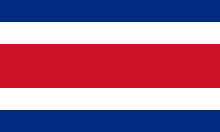 Gonzalo Segares, Williamsburg Legacy (2003), Costa Rican international
Gonzalo Segares, Williamsburg Legacy (2003), Costa Rican international -
 Paris Simmons, New Orleans Jesters (2011), English Premier League player
Paris Simmons, New Orleans Jesters (2011), English Premier League player -
 Jonathan Spector, Chicago Fire Premier (2001), U.S. international, English Premier League player
Jonathan Spector, Chicago Fire Premier (2001), U.S. international, English Premier League player -
 Marcus Tracy, Carolina Dynamo (2008), 2008 Hermann Trophy winner
Marcus Tracy, Carolina Dynamo (2008), 2008 Hermann Trophy winner -
 Mason Trafford, Vancouver Whitecaps Residency (2008), Canadian international
Mason Trafford, Vancouver Whitecaps Residency (2008), Canadian international -
 Matthew Uy, Westchester Flames/Long Island Rough Riders (2010–2011), Philippines international
Matthew Uy, Westchester Flames/Long Island Rough Riders (2010–2011), Philippines international -
 Andrew Wenger, Reading United/Carolina Dynamo (2010–2011), 2011 Hermann Trophy winner, No. 1 Pick in 2012 MLS SuperDraft
Andrew Wenger, Reading United/Carolina Dynamo (2010–2011), 2011 Hermann Trophy winner, No. 1 Pick in 2012 MLS SuperDraft -
 Jeremiah White, Ocean City Barons (2003), U.S. international
Jeremiah White, Ocean City Barons (2003), U.S. international -
 Chris Wingert, Brooklyn Knights (2003), U.S. international, 2003 Hermann Trophy Winner
Chris Wingert, Brooklyn Knights (2003), U.S. international, 2003 Hermann Trophy Winner -
 Eric Wynalda, Bakersfield Brigade (2007–2008), U.S. international, German Bundesliga player
Eric Wynalda, Bakersfield Brigade (2007–2008), U.S. international, German Bundesliga player -
 DeAndre Yedlin, Seattle Sounders FC U-23 (2012), U.S. international, English Premier League player
DeAndre Yedlin, Seattle Sounders FC U-23 (2012), U.S. international, English Premier League player -
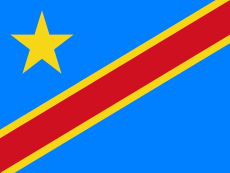 Steve Zakuani, Cleveland Internationals (2008), No. 1 Pick in 2009 MLS SuperDraft, Dem. Rep. Congolese international
Steve Zakuani, Cleveland Internationals (2008), No. 1 Pick in 2009 MLS SuperDraft, Dem. Rep. Congolese international -
 Gyasi Zardes, Ventura County Fusion (2011–2012), U.S. international
Gyasi Zardes, Ventura County Fusion (2011–2012), U.S. international -
 Sal Zizzo, Orange County Blue Star (2006–2007), U.S. international, German Bundesliga player
Sal Zizzo, Orange County Blue Star (2006–2007), U.S. international, German Bundesliga player -
 Graham Zusi, Central Florida Kraze (2005), U.S. international
Graham Zusi, Central Florida Kraze (2005), U.S. international
Average attendance
Attendance stats are calculated by averaging each team's self-reported home attendances from the historical match archive at http://www.uslsoccer.com/history/index_E.html, and then averaging this league-wide.
Regular season
|
Playoffs
|
References
- ↑ "United Soccer Leagues, Part 2 (1994–1996)". Homepages.sover.net. February 13, 2010. Retrieved February 28, 2012.
- ↑ "The Year in American Soccer, 1996". Homepages.sover.net. Retrieved February 28, 2012.
- ↑ "United Soccer Leagues, Part 3 (1997–1999)". Homepages.sover.net. February 13, 2010. Retrieved February 28, 2012.
- ↑ "The Year in American Soccer, 1998". Homepages.sover.net. Retrieved February 28, 2012.
- ↑ "The Year in American Soccer, 1999". Homepages.sover.net. Retrieved February 28, 2012.
- ↑ "United Soccer Leagues, Part 4 (2000–2003)". Homepages.sover.net. February 14, 2010. Retrieved February 28, 2012.
- ↑ "United Soccer Leagues, Part 4 (2000–2003)". Homepages.sover.net. February 14, 2010. Retrieved February 28, 2012.
- ↑ "United Soccer Leagues, Part 4 (2000–2003)". Homepages.sover.net. February 14, 2010. Retrieved February 28, 2012.
- ↑ "Cape Cod repeats as champion with 1–0 shutout of Chicago". Soccertimes.com. August 9, 2003. Retrieved February 28, 2012.
- ↑ "Cook scores late to send Central Florida past Rapids Reserve for title". Soccertimes.com. August 7, 2004. Retrieved February 28, 2012.
- ↑ "Des Moines captures PDL title in seven rounds of penalties". Pdl.uslsoccer.com. August 13, 2005. Retrieved February 28, 2012.
- ↑ "Gruenebaum, Frieberg lead Menace past El Paso for title in penalty kicks". Soccertimes.com. August 13, 2005. Retrieved February 28, 2012.
- ↑ "Uzoigwe, Shipalane power Michigan to first championship 2–1 over Heat". Soccertimes.com. August 12, 2006. Retrieved February 28, 2012.
- ↑ Demosphere International, Inc. (August 12, 2006). "United Soccer Leagues (USL)". Uslsoccer.com. Retrieved February 28, 2012.
- ↑ "Chill stay cool to win PDL title". Uslsoccer.com. August 9, 2008. Retrieved February 28, 2012.
- ↑ "Fusion overcome Fire for PDL title". Uslsoccer.com. Retrieved February 28, 2012.
- ↑ "Perfection in Portland". Pdl.uslsoccer.com. August 7, 2010. Retrieved February 28, 2012.
- ↑ "Timbers Make History at Kitsap; Portland Becomes First Unblemished Team Since 1998". Uslsoccer.com. July 18, 2010. Retrieved February 28, 2012.
- ↑ "Chill Dominate Season Honors". Pdl.uslsoccer.com. July 27, 2010. Retrieved February 28, 2012.
- ↑ "Bucks Highlight PDL Award Winners". Uslsoccer.com. August 5, 2011. Retrieved February 28, 2012.
- ↑ "FC London Claims PDL Championship". USLPDL.com. August 4, 2012. Retrieved February 15, 2014.
- ↑ "Canadian clubs turning heads with PDL success". WakingTheRed.com. July 29, 2013. Retrieved February 15, 2014.
- ↑ "Clubs set for PDL Championship". USLPDL.com. August 1, 2013. Retrieved February 15, 2014.
- ↑ "Aztex Claim PDL Championship". USLPDL.com. August 4, 2013. Retrieved February 15, 2014.
- ↑ Nicholas Mendola (August 3, 2014). "Michigan Bucks top Kitsap Pumas in PDL championship match". NBCSports.com. Retrieved August 3, 2015.
- ↑ "USL Rising - United Soccer League". USLSoccer.com. February 10, 2015. Retrieved August 3, 2015.
- ↑ Dave Rowaan (August 3, 2015). "KW United win club's first ever PDL Championship". WakingTheRed.com. Retrieved August 3, 2015.
- ↑ Paul Kennedy (August 3, 2015). "Ontario's K-W United FC takes PDL crown". SoccerAmerica.com. Retrieved August 3, 2015.
- ↑ Bird, Liviu (July 24, 2012). "In the P.D.L., Looking Up From the Bottom of the Food Chain". The New York Times. New York Times Soccer Blog.
- ↑ "United Soccer Leagues (USL)". Pdl.uslsoccer.com. December 17, 2008. Retrieved February 28, 2012.
- ↑ "Floridians F.C. Joins PDL". United Soccer Leagues (USL). December 20, 2013. Retrieved January 21, 2014.
- ↑ "SW Florida Soccer Club Joins PDL". Uslsoccer.com. August 21, 2012. Retrieved August 21, 2012.
- ↑ http://sfcityfc.com/team/
- ↑ "PDL Reveals Lakeland Tropics as Expansion Franchise". Premier Development League (PDL). September 19, 2016. Retrieved September 19, 2016.
- ↑ http://www.uslpdl.com/news_article/show/698095?referrer_id=2242498
- ↑ "Wilmington Hammerheads FC Awarded PDL Franchise". Premier Development League (PDL). September 29, 2016. Retrieved September 29, 2016.
- ↑ "Tobacco Road FC Revealed as PDL Expansion Franchise". Premier Development League (PDL). November 16, 2016. Retrieved November 16, 2016.
